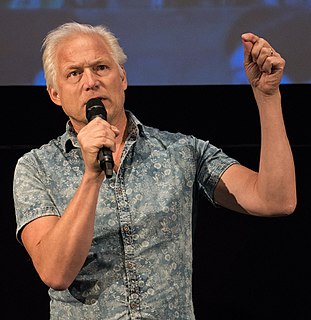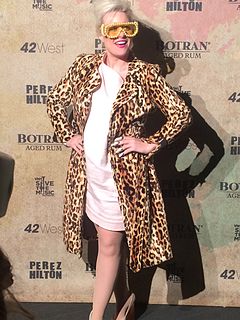A Quote by Rajkumar Hirani
I edit as I write and shoot. Any extra line, any pause that I know will get chopped on the editing table is done away with then and there.
Related Quotes
Anyone of any age, any race, any background, any education - if they write an interesting enough book - can become a published author. What it takes is imagination, the ability to put words on a paper in an interesting, perhaps even unique way, the fortitude to rewrite, rewrite, rewrite, and polish, edit, polish, edit until the story sort of sings. I think everyone has a story inside him, but only a few have the persistence and, of course, the interest, to write it down and see it through.
The Coen brothers: Of all the directors I've worked with, they're the only ones who have given me the storyboards attached to the script. It was very cool for me, because I knew when I was in close-up or if it was far away, and it also made me know that anything that happened in the edit wasn't personal. Because they edit their own movies, so they were editing it as they went.
Usually I will hear a sample, think of a theme and then it will take me a couple of days to write down some lyrics. Then I will decide that I hate those lyrics and rewrite. Then I will change all the music around. Then I will rewrite all the lyrics again. I am a bit of a perfectionist although you would never know it because all my songs are like chopped up and @#$%& up, but you see that's on purpose.
Separate out the creative act from the act of editing and execution. Make it a two-step process. First, let ideas flow and encourage EVERY idea to make it to the whiteboard. Don't criticize, judge, edit, budget, or worry. An idea on the wall can't hurt anyone, so let them rip without restriction. After any and all ideas have the opportunity to "come out to play", only then should you apply your analytical and logical side to the effort. Don't mix the creative process with the editing process or you'll kill your ideas before they even get a fighting chance.
Of course, to publish something, you have to write it, polish it, then hire out the line editing, copy editing and cover design. After which, you pick your way through the minefield of conforming to the differing requirements of Amazon, Barnes & Noble and Smashwords, or hire someone to do it for you.






































